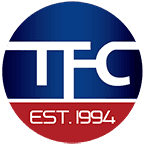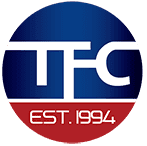When you are faced with the decision to borrow money, it is essential to understand the differences between unsecured and secured loans, as each option has distinct advantages and considerations based on your financial circumstances.
Unsecured Loans:
Unsecured loans are not backed by collateral, which means they do not require you to pledge any assets to secure the loan. These loans are typically granted based on your creditworthiness and financial history. Here are common types of unsecured loans:
- Credit Cards: Credit cards provide a revolving line of credit that can be used for purchases, cash advances, or balance transfers. They offer convenience and flexibility but often come with higher interest rates if balances are not paid in full each month.
- Personal Loans: Personal loans are installment loans that can be used for various purposes, such as debt consolidation, home improvements, or unexpected expenses. They have fixed terms and interest rates and are usually based on your credit score and income.
- Student Loans: Designed to finance higher education expenses, student loans come with favorable repayment terms and may offer deferment options while you are in school. Federal student loans do not require a credit check, making them accessible to students with limited credit history.
- Home Improvement Loans: These loans are used to fund renovations or repairs to your home. They do not require collateral but may have higher interest rates compared to secured home equity loans.

Secured Loans:
Secured loans are backed by collateral, which reduces the lender’s risk and often results in lower interest rates. Here are common types of secured loans:
- Mortgages: A mortgage is a loan used to purchase real estate, where the property serves as collateral. Mortgages typically have long repayment terms and lower interest rates compared to other loan types.
- Home Equity Lines of Credit (HELOC): A HELOC allows homeowners to borrow against the equity in their homes. It functions like a credit card with a revolving line of credit secured by the property.
- Auto Loans: Auto loans are used to finance the purchase of vehicles, with the vehicle itself serving as collateral. These loans often have fixed terms and interest rates based on the borrower’s creditworthiness and the vehicle’s value.
- Title Loans: Title loans allow borrowers to use their vehicle’s title as collateral to secure a loan. The amount borrowed is based on the vehicle’s appraised value, and borrowers risk losing their vehicle if they default on the loan.
Advantages of Secured Loans:
- Lower interest rates due to collateral.
- Higher borrowing limits based on the value of the asset.
- Easier approval for individuals with less-than-perfect credit.
Choosing Between Unsecured and Secured Loans: When deciding between unsecured and secured loans, consider the following factors:
- Credit Profile: If you have good credit, you may qualify for unsecured loans with favorable terms. For individuals with lower credit scores or limited credit history, secured loans may be a better option.
- Loan Purpose: The purpose of the loan and the amount needed will influence your choice. Secured loans are suitable for large purchases like homes or vehicles, while unsecured loans are ideal for smaller expenses or short-term financing needs.
- Risk Tolerance: Evaluate your comfort level with risk. Secured loans carry the risk of asset forfeiture if you default, whereas unsecured loans do not require collateral but may have higher interest rates.
Frequently Asked Questions About Unsecured Loans vs Secured Loans
- What is the difference between unsecured loans and secured loans?
- Secured Loans: Secured loans require collateral, such as a vehicle or property, to secure the loan. If the borrower defaults, the lender can seize the collateral to recover their losses.
- Unsecured Loans: Unsecured loans do not require collateral. Approval is based on the borrower’s creditworthiness and income, and the lender relies solely on the borrower’s promise to repay.
- Which type of loan is easier to qualify for, unsecured or secured?
- Secured loans are often easier to qualify for because the collateral reduces the lender’s risk, making them more willing to extend credit to borrowers with lower credit scores or limited credit history.
- Unsecured loans typically require a stronger credit profile and income verification since they do not have collateral to secure the loan.
- What are the risks associated with secured loans, such as title loans?
- The primary risk of secured loans like title loans is the potential loss of the collateral (e.g., vehicle) if the borrower fails to repay the loan according to the terms.
- Borrowers should carefully consider their ability to repay and the consequences of defaulting on a secured loan before agreeing to the terms.
Quote from Daniel Joelson, Consumer Finance Expert: “Secured loans provide an avenue for borrowers to access funds by leveraging their assets, such as vehicles or homes. It’s important to weigh the benefits of securing a loan with collateral against the risks involved, including potential loss of the collateral if payments are not made as agreed.”
Considerations for Borrowers: Before taking out a loan, carefully assess your financial situation and borrowing needs. Compare loan terms, interest rates, and repayment options to make an informed decision. Always borrow responsibly and within your means to avoid financial hardship.
Conclusion: Both unsecured and secured loans serve different purposes and offer unique benefits and considerations. Understanding the differences between these loan types will help you make the right borrowing decision based on your individual circumstances and financial goals.
This article aims to provide informative insights into unsecured and secured loans, empowering borrowers to make informed financial decisions. For personalized loan assistance, contact TFC Title Loans to explore options for leveraging the equity in your vehicle responsibly and securely.


